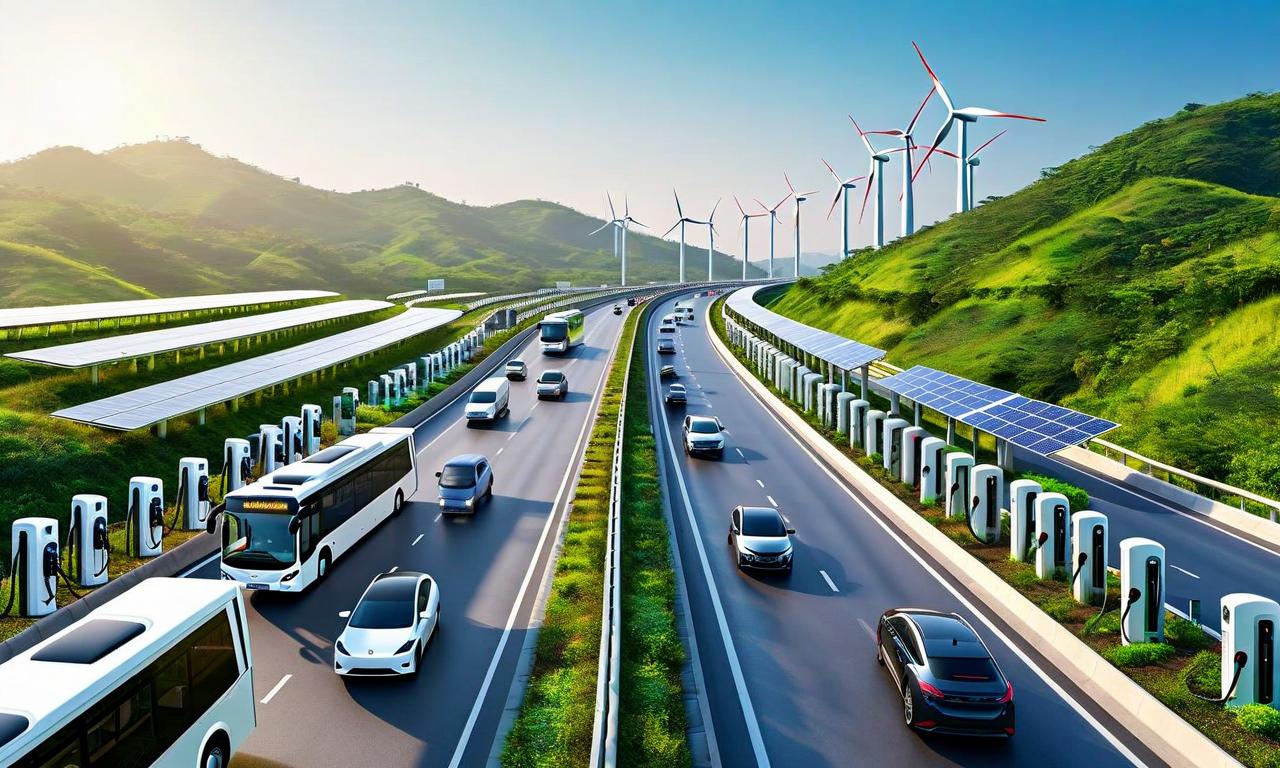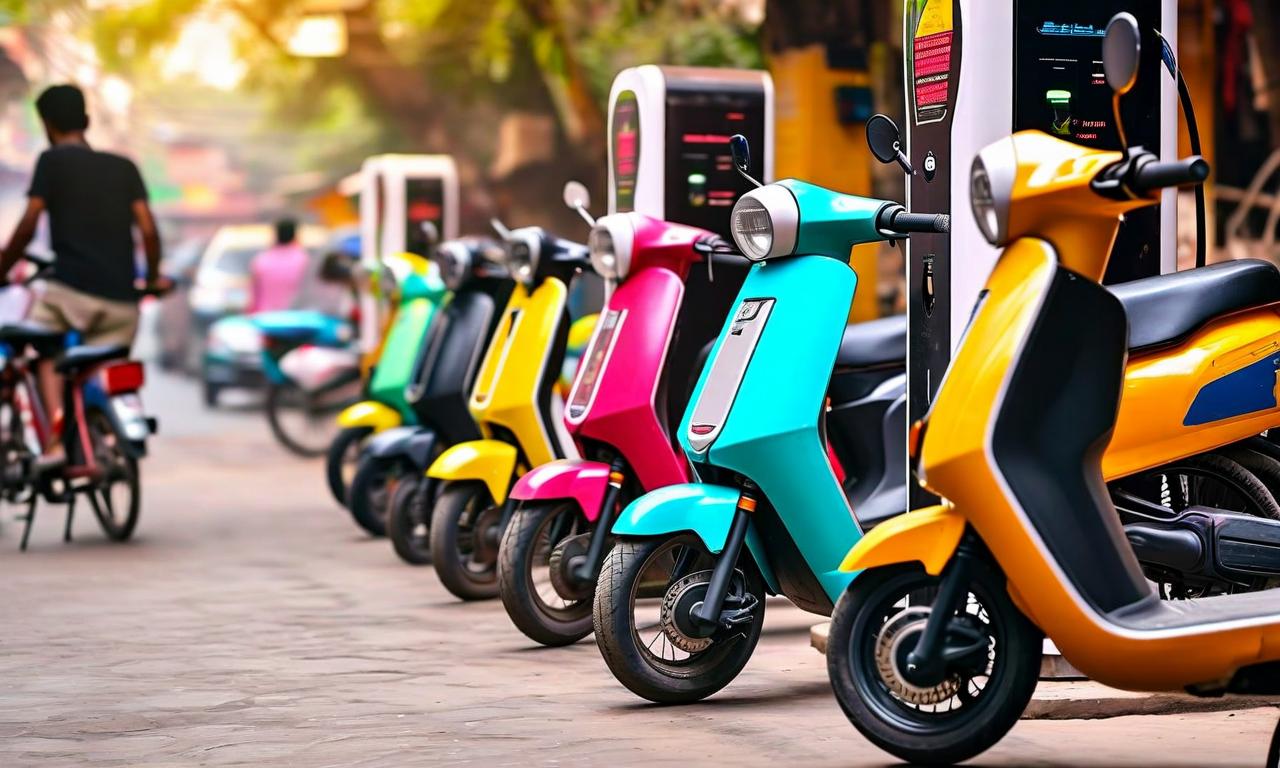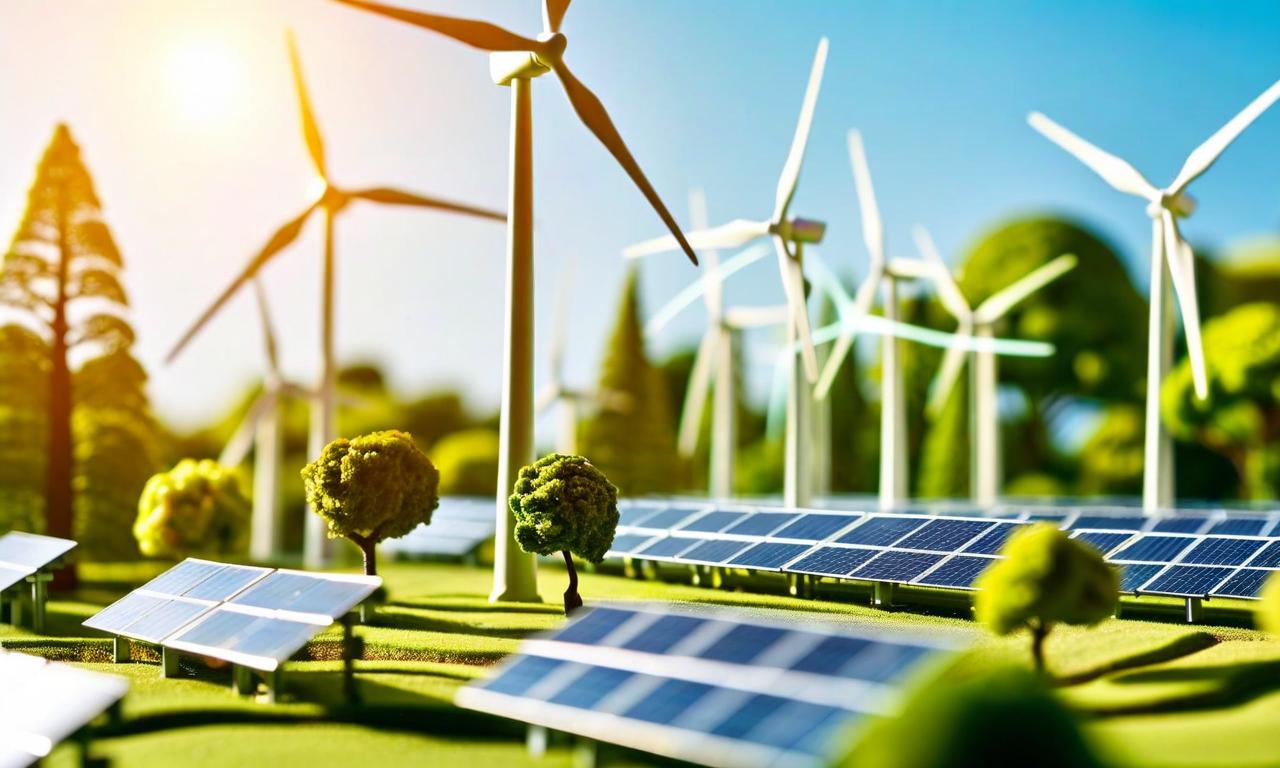Maharashtra Boosts EV Adoption: Full Toll Exemption on Major Expressways
Maharashtra has introduced a complete toll exemption for electric vehicles (EVs) on three major expressways: Atal Setu, Mumbai-Pune Expressway, and Samruddhi Mahamarg. The policy covers all EV categories including four-wheelers, buses, and private vehicles. Approved under the Motor Vehicles Taxation Act of 1958, this initiative aims to promote EV adoption, reduce carbon emissions, and make electric vehicles more economically viable. The exemption is expected to boost Maharashtra's EV ecosystem, increase EV adoption, and stimulate growth in the EV manufacturing and charging infrastructure sectors.

*this image is generated using AI for illustrative purposes only.
In a significant move to promote electric vehicle (EV) adoption, Maharashtra has implemented a complete toll exemption for EVs on three key expressways. The policy covers the Atal Setu, Mumbai-Pune Expressway, and Samruddhi Mahamarg connecting Nagpur and Mumbai.
Policy Details
The toll exemption, approved under the Motor Vehicles Taxation Act of 1958, was given the green light by the Chief Minister and Deputy Chief Ministers. This bold initiative encompasses all categories of electric vehicles, including:
- Four-wheelers
- Buses classified under M2, M3, and M6 vehicle categories
- Private vehicles
- Buses operated by State Transport Undertakings
- Buses run by private entities
Environmental and Economic Impact
The Transport Minister highlighted the dual benefits of this policy:
- Support for EV owners
- Reduction in carbon emissions, promoting a cleaner environment
Industry analysts view this move as a significant boost to Maharashtra's EV ecosystem. The exemption is expected to make electric vehicles more economically viable by reducing operational costs for both private owners and commercial fleet operators.
Implications for the EV Industry
This policy is likely to have far-reaching effects on the electric vehicle industry in Maharashtra:
Increased Adoption: The financial incentive of toll-free travel on major routes could accelerate EV adoption among private vehicle owners and commercial operators.
Cost Savings: For frequent travelers on these expressways, the toll exemption could translate into substantial savings, making EVs more attractive from a cost perspective.
Environmental Benefits: As more vehicles switch to electric, the region could see a reduction in carbon emissions, particularly along these high-traffic corridors.
Industry Growth: The policy could stimulate growth in the EV manufacturing and charging infrastructure sectors within Maharashtra.
Looking Ahead
While the toll exemption is a significant step, it remains to be seen how this policy will interact with other EV initiatives at the state and national levels. As Maharashtra positions itself as an EV-friendly state, it may inspire similar moves in other regions, potentially reshaping India's automotive landscape.
The success of this policy will likely be measured by the growth in EV registrations and the reduction in emissions along these key routes in the future.

























